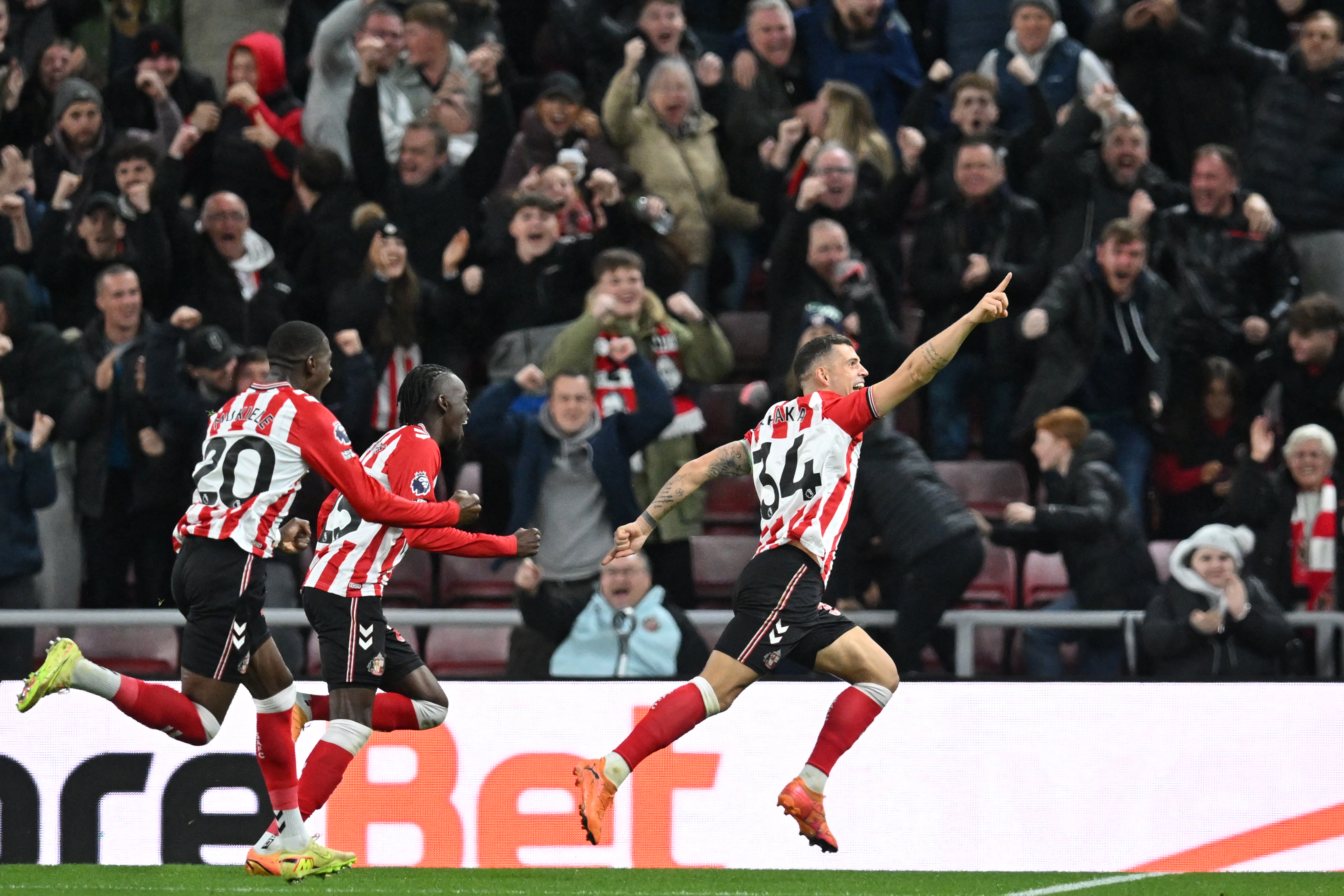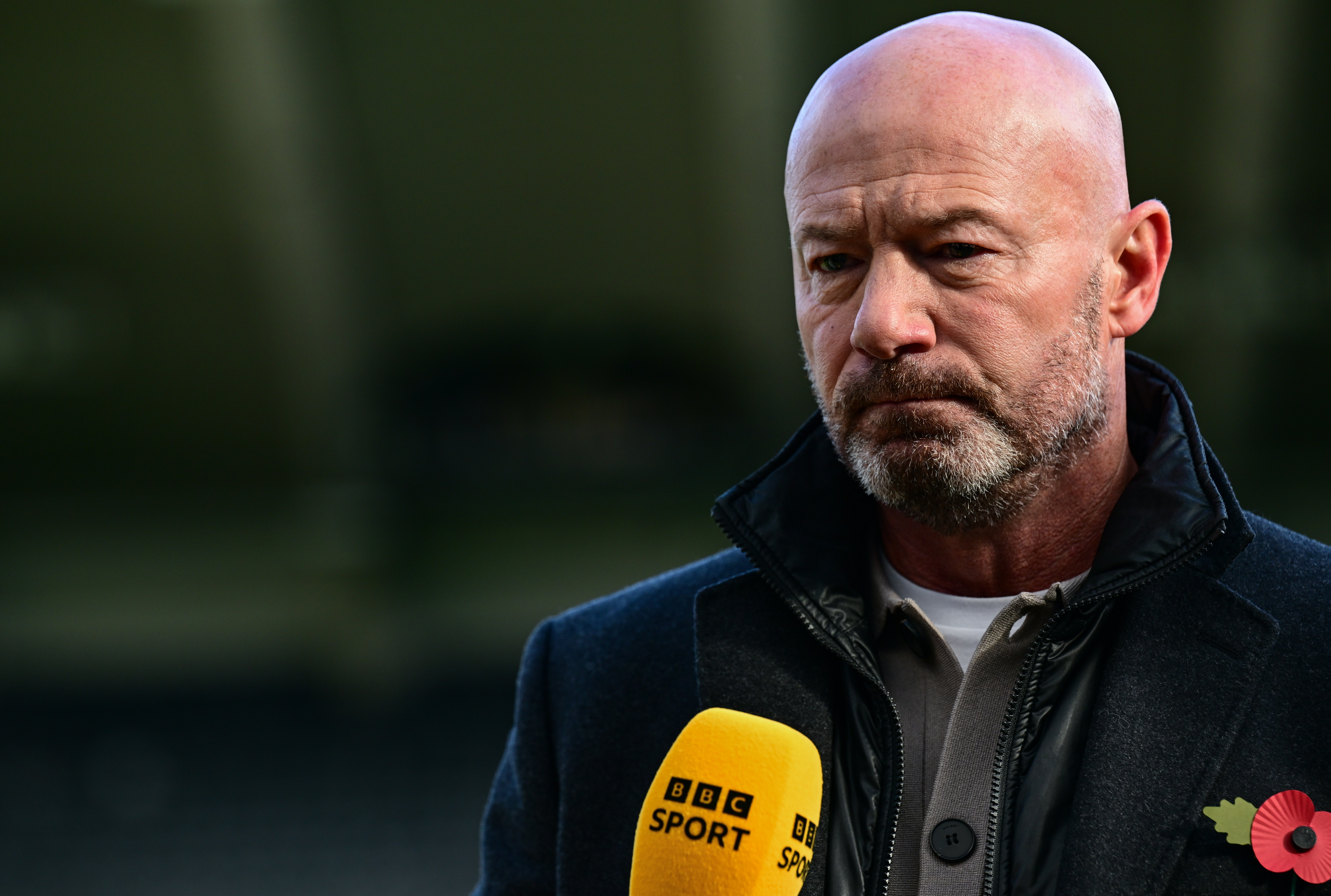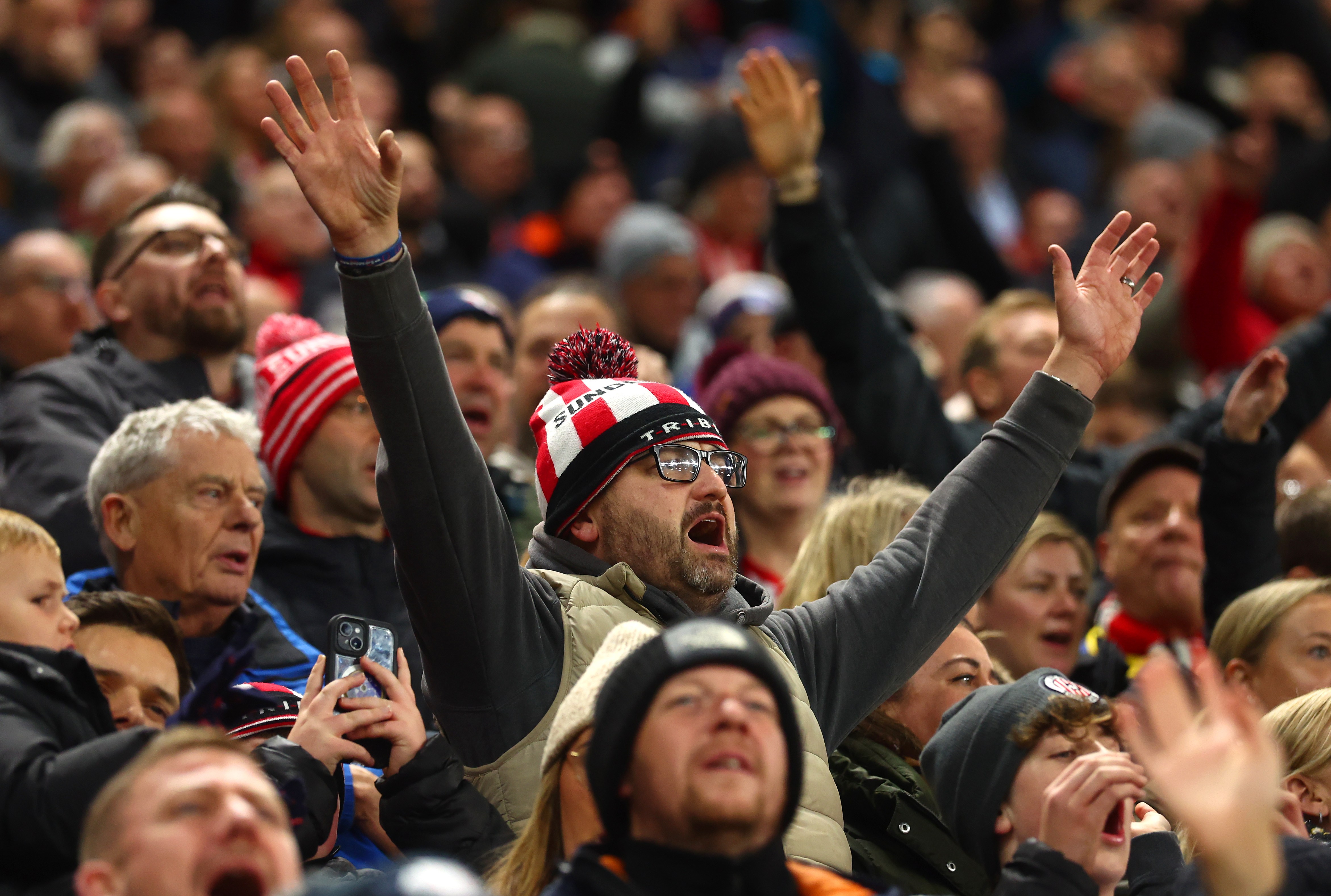Alan Shearer’s Biased Punditry: A Modern-Day Cain in the Sunderland-Newcastle Derby!
The Sunderland-Newcastle rivalry runs deep, echoing through the decades as one of the fiercest in English football. Its roots stem from not only geographical proximity but also a rich tapestry of cultural and historical animosities. As the two teams prepare to face off once again, the specter of Alan Shearer looms large, his words often igniting flames of division amongst fans. Love him or hate him, Shearer embodies the tribalism that characterizes the North East’s football scene.
Alan Shearer, a hero to Newcastle United fans, has never been shy about expressing his disdain for Sunderland. His history as a player, especially his time as a prolific striker for the Magpies, cements his allegiance. Yet his role as a pundit has come under scrutiny, particularly when it seems that his affection for Newcastle translates into a remarkable lack of fair commentary regarding their rivals. The recent sentiments expressed by Sunderland fans regarding Shearer’s perceived bias are not unfounded.
The essence of the rivalry is more than just a game; it is interwoven with identity and pride. For Sunderland fans, Shearer’s commentary is often viewed as a personal affront, a reminder of the historical superiority Newcastle fans claim over them. His critiques often lack the nuance and balance seen in other pundits, further polarizing the already contentious relationship between the two sets of supporters. This disparity raises questions about the role of sports commentary in reinforcing or alleviating animosity among fans.
Moreover, the approach Shearer takes contrasts sharply with that of other former players who have managed to navigate their allegiances while maintaining a degree of respect for rival teams. Figures like Niall Quinn and Kevin Phillips have played pivotal roles in Sunderland’s history and have often chosen to speak about Newcastle with a level of respect that Shearer does not reciprocate. This lack of class, as some would argue, fuels the fire for those who wish to see a more harmonious footballing community, where mutual respect exists even among rivals.
The absence of sportsmanship in Shearer’s remarks often leads to heightened tensions during derby week, a time when emotions run high and both sets of supporters are eager for victory. The decision not to “bubble” Newcastle supporters attending the match only adds to the atmosphere, placing Shearer’s commentary under an even harsher spotlight. The expectation for a figure of Shearer’s stature to serve as a calming influence is perhaps unrealistic, yet it speaks to a broader desire among fans for a more respectful rivalry.
On another note, amidst the criticism of figures like David Moyes, it’s important to remember the community aspects of football, particularly the emotional ties that bind supporters. The mention of the Bradley Lowery Foundation and its connection to both Sunderland and Everton is a poignant reminder that football is not just about winning or losing; it is also about support, compassion, and shared humanity. The tragic loss of young Anna, a brave girl whose life was celebrated by both sets of fans, underscores the power of football to unite people beyond club loyalties and rivalries.
In these moments of solidarity, the derbies become more than just matches; they transform into gatherings that honor those lost and support those in need. Such sentiments remind us that even amid fierce competition, the fan communities can come together for a common cause. The applause requested at the ninth minute is a beautiful tribute that transcends the scoreline, yet it requires acknowledgment from all sides, including those who wield influence like Shearer.
The juxtaposition of Shearer’s often caustic remarks with moments of unity among fans illustrates the complex dynamics at play in football culture. His inability to rise above tribalism may seem innocuous to some, but for many, it perpetuates a cycle of hostility that can overshadow the more profound aspects of football. It’s a dance of egos and loyalties where words matter, shaping perceptions and potentially inciting clashes among supporters.
As we reflect on the significance of such derbies, it’s essential to consider how commentary and media representation impact the narrative surrounding these matches. The responsibility of pundits like Shearer extends beyond mere analysis of the game; they play a role in shaping the culture of rivalry. Whether deliberately or not, their words can either fan the flames of division or encourage a more nuanced understanding of what it means to be a supporter in today’s football landscape.
As Sunderland rises and strives for a brighter future, the hope is that the spirit of the game can evolve. Despite the historical baggage, there lies an opportunity for a more respectful discourse. The actions of the fans at the Everton match serve as a reminder of the broader potential for connection and compassion that exists within this beautiful game. What remains to be seen is whether figures like Shearer will adapt and contribute positively to the narrative or continue to dwell in the past, content to provoke rather than unite.

Want to have your say on all things Sunderland? Drop us a line and we’ll publish your views! RokerReport@yahoo.co.uk
Dear Roker Report,
I’ve touched on this subject in the past, but just what is it with Alan Shearer and his hatred of Sunderland?
We all get that he’s black and white through and through, but with the derby game slowly creeping up, I would expect someone of his profile to try and cool things down a little (especially since the ridiculous decision not to “bubble” Newcastle supporters attending the match was made).
Why can’t this guy show some class like Niall Quinn and Superkev?
I’ve never heard these guys try to wax caustic with their remarks about Newcastle in the way Shearer loves to do. I get that it makes good viewing, watching him having to squirm when we have a good result, but I just feel he would be best served cooling it off a bit now that we’re nearing the big one.
Then again, it does feel good watching him make a fool of himself regularly — maybe he and Chris Sutton should go into management together? Just goes to show that some former players are garbage at anything else they try to do, such as TV pundits pretending to be knowledgeable.
Peter Milton
Ed’s Note [Phil]: Hi, Peter. Thank you for your letter.
I think the answer to your question is very simple: Shearer loves to play to the gallery and he knows that he’s got legions of loyal Newcastle fans hanging on his every word — particularly when he only gives Sunderland credit through gritted teeth — and he’s not going to change his stance on it now, because it’s a very easy way of remaining in favour with fans of his former club.
Unlike pundits such as Jamie Carragher and Gary Neville, who’ve undoubtedly developed the ability to give praise to teams they may not be fond of, Shearer’s not mastered the art of fairness and balance when it comes to his Sunderland-related analysis, and I doubt he ever will.
A shame, but we shouldn’t lose any sleep over it. We’ve got more major targets to focus on this season than impressing the likes of him.
Dear Roker Report,
Amid all this criticism and anger about David Moyes, let’s put all that to one side and just remember what the Everton match is also about.
Wasn’t it the match where The Bradley Lowery Foundation came to the fore courtesy of Jermain Defoe, with donations and support from the Everton supporters. Also, didn’t we reciprocate with support for them?
A request has gone out across a few social media pages for all of us to show support for one of our own who passed away this week — a very brave girl called Anna.
The request is to applaud at the ninth minute to celebrate this girl’s short life.
Paul55
Ed’s Note [Phil]: Hi, Paul. Thank you for getting in touch.
I felt the game on Monday night was played in a great spirit (the somewhat muted, non-aggressive reception for David Moyes was interesting, as well), and the way both sets of fans came together to pay their respects to both Bradley Lowery and Anna was exceptional.
I’ve got a lot of time for Everton — a great club with great supporters — and Monday’s game was another cracking game of football to watch. Roll on their next visit to Wearside!


